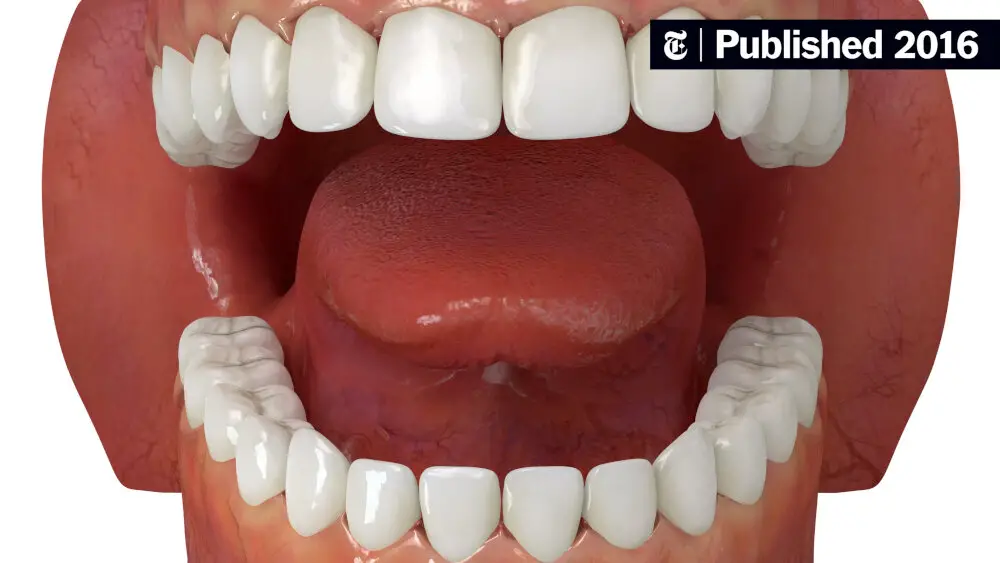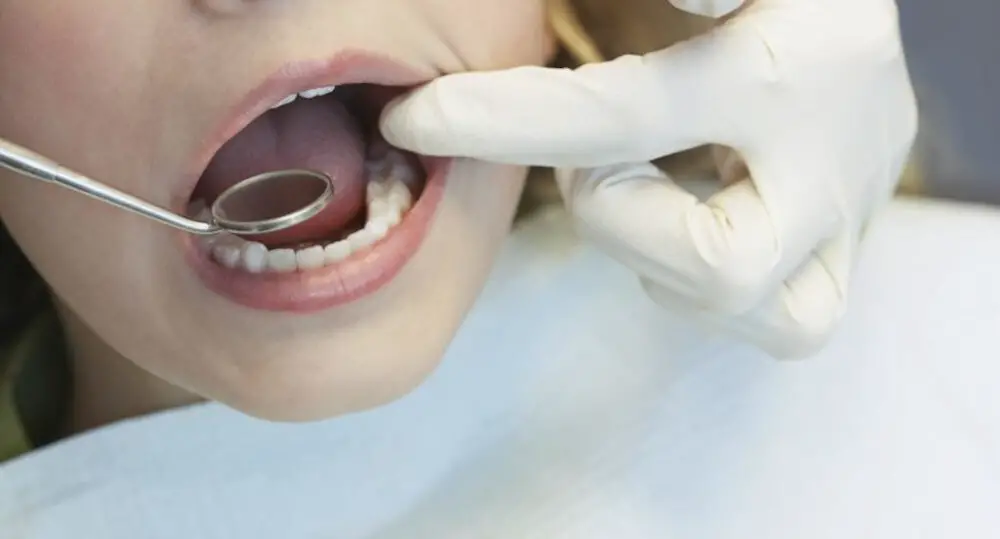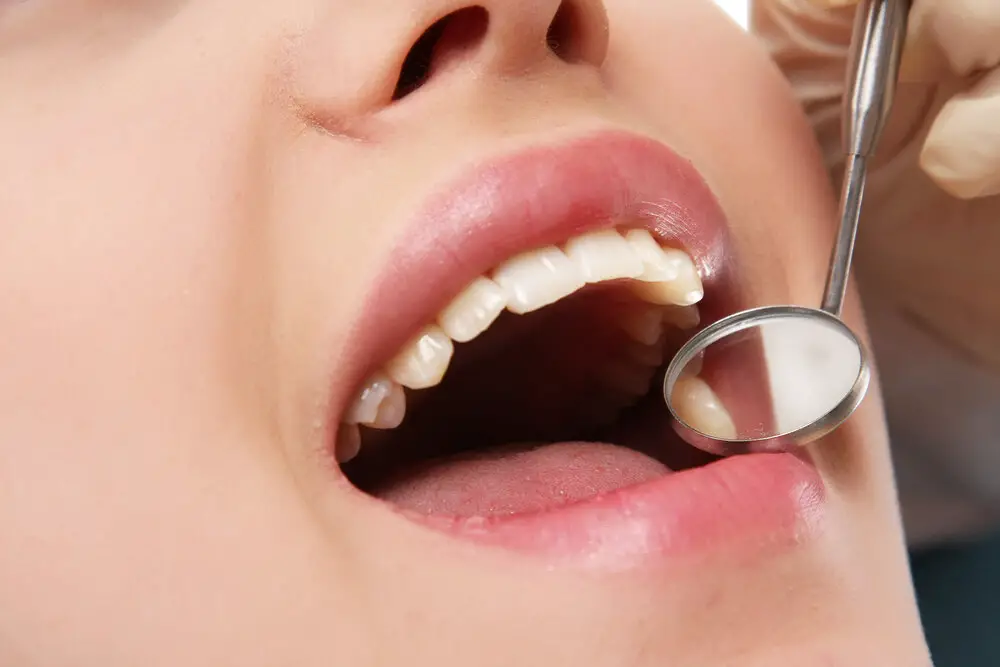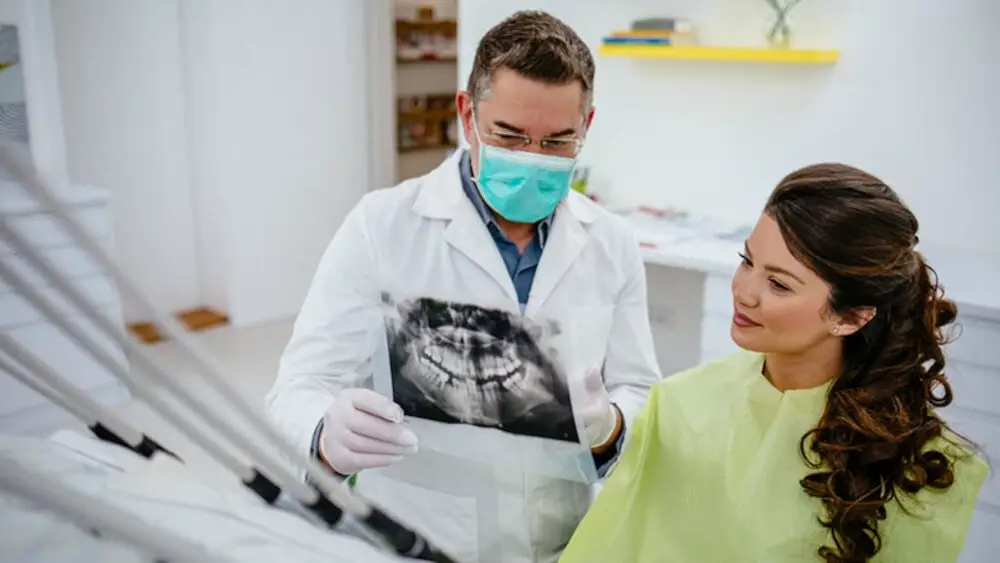5 Essential Preparations Before Getting Your Wisdom Teeth Extracted

Getting your wisdom teeth extracted can be a daunting experience for some people. The thought of undergoing surgery and experiencing discomfort afterwards can cause anxiety and stress. However, with the right preparations, the process can be much smoother and less intimidating. In this article, we will discuss five essential preparations you should make before getting your wisdom teeth extracted. Firstly, it is important to find a reputable and experienced oral surgeon who specializes in wisdom teeth extraction. Ask for recommendations from friends and family or consult with your dentist for a referral. It is crucial to choose a surgeon who you feel comfortable with and who can guide you through the entire process. A skilled and experienced surgeon will ensure that the procedure is performed safely and efficiently, minimizing any potential risks or complications.
Wisdom teeth extraction is a surgical procedure that involves the removal of one or more of the four molars located at the back of the mouth. These teeth typically emerge during late adolescence or early adulthood and can cause a range of oral health issues if left untreated. The extraction process typically involves the administration of anesthesia, after which the dentist or oral surgeon will use a specialized tool to loosen and remove the tooth from the socket. In some cases, stitches may be required to promote healing and prevent infection. While the procedure may sound daunting, proper preparation can help ensure a smooth and successful extraction.
Preparing for any medical procedure is crucial to ensure a smooth and successful outcome. This is especially true for wisdom teeth extraction, which can be a complex and painful procedure. Proper preparation can help reduce the risk of complications, minimize pain and discomfort, and speed up the recovery process. Some of the essential preparations include arranging for transportation, stocking up on soft foods and pain medication, following pre-operative instructions, and setting aside enough time for rest and recovery. By taking these steps, patients can feel more confident and relaxed, knowing that they have done everything possible to prepare for the procedure.
Consultation with Oral Surgeon

Consultation with an oral surgeon is an essential preparation before getting your wisdom teeth extracted. This consultation is an opportunity for the oral surgeon to evaluate your dental health and determine the best course of action for your extraction procedure. During the consultation, the oral surgeon will review your medical history, take x-rays of your teeth, and perform a physical examination of your mouth. This evaluation is to ensure that you are a good candidate for the procedure and to identify any potential risks or complications that may arise during or after the extraction. Furthermore, the consultation with the oral surgeon also allows you to ask any questions or concerns you may have about the procedure. This is an excellent opportunity to discuss the type of anesthetic that will be used and how it will affect you during the extraction. The oral surgeon will also explain the steps of the procedure and what you can expect during your recovery period. By having a consultation with the oral surgeon, you can feel confident and informed about the extraction procedure, knowing that you have chosen the best course of action for your dental health.
Consultation with an oral surgeon is an essential step before getting your wisdom teeth extracted. The oral surgeon will examine your mouth and evaluate your overall health to determine if you are a good candidate for the procedure. They will also discuss the risks and benefits of the surgery with you, as well as any post-operative care instructions. This consultation is important because it allows you to ask any questions you may have and address any concerns you may be experiencing. Additionally, the oral surgeon will be able to provide you with customized recommendations based on your individual needs. By taking the time to consult with an oral surgeon, you can ensure that you are fully prepared both physically and mentally for the procedure.
Before getting your wisdom teeth extracted, it’s important to have a consultation with your dentist or oral surgeon. During this consultation, there are several questions that you should ask to ensure that you are fully prepared for the procedure. Firstly, you should ask about the type of anesthesia that will be used and the potential side effects. Secondly, it’s important to ask about the recovery process, including how long it will take and what steps you can take to ensure a smooth and speedy recovery. Thirdly, you should ask about any potential complications that may arise during or after the procedure and how they will be addressed. Additionally, you may want to ask about the experience and qualifications of the dentist or oral surgeon who will be performing the procedure. By asking these questions, you can feel confident and informed about your wisdom teeth extraction.
Understanding the procedure of wisdom teeth extraction is crucial before undergoing the surgery. The process involves numbing the area with local anesthesia, making an incision in the gum tissue, removing any bone blocking the tooth, and then extracting the tooth. In some cases, the tooth may need to be sectioned into smaller pieces for easier removal. The procedure typically takes about 30-60 minutes, and patients may experience some discomfort and swelling afterward. It’s important to follow post-operative instructions carefully, including rest, pain management, and avoiding certain foods and activities. By understanding the procedure and preparing appropriately, patients can have a smoother and more successful recovery.
Medications and Supplements

Medications and supplements can play a vital role in the healing process after wisdom teeth extraction. Your dentist or oral surgeon may prescribe pain relievers and antibiotics to help control pain and prevent infection. It is important to follow the instructions carefully and take the medications as prescribed to ensure a smooth recovery. Over-the-counter pain relievers such as acetaminophen or ibuprofen may also be recommended to help manage any discomfort during the healing process. However, it is important to avoid aspirin as it can increase the risk of bleeding. In addition to prescribed medications, supplements such as vitamin C and zinc can also aid in the healing process. Vitamin C helps boost the immune system and promotes tissue healing, while zinc can help reduce inflammation and aid in wound healing. It is important to speak with your dentist or oral surgeon before taking any supplements to ensure they do not interfere with any prescribed medications or medical conditions. By taking the appropriate medications and supplements, you can promote a faster and smoother recovery after wisdom teeth extraction.
Before getting your wisdom teeth extracted, it is important to be aware of the medications and supplements that can interfere with the procedure. Medications such as aspirin, ibuprofen, and blood thinners can increase the risk of bleeding during and after the extraction. It is recommended to avoid these medications for at least a week before the surgery. Additionally, supplements such as vitamin E and garlic can also increase the risk of bleeding and should be avoided. It is important to inform your dentist or oral surgeon of any medications or supplements you are taking before the procedure to ensure a safe and successful extraction.
Before getting your wisdom teeth extracted, it is important to discuss pain relief medication options with your dentist or oral surgeon. Over-the-counter pain relievers such as ibuprofen and acetaminophen can be effective in managing pain and reducing swelling. Your dentist may also prescribe stronger pain medication, such as opioids, for more severe pain. It is crucial to follow the recommended dosage and instructions for any medication and to be aware of potential side effects. Additionally, using ice packs and following proper post-operative care instructions can also help alleviate pain and discomfort after wisdom teeth extraction.
Alternative remedies for pain relief can be a great option for those who want to avoid or minimize the use of traditional painkillers. Some popular natural remedies for pain relief include ginger, turmeric, and chamomile tea. Ginger and turmeric have anti-inflammatory properties that can help reduce swelling and pain, while chamomile tea has sedative effects that can help you relax and feel more comfortable. Acupuncture, massage therapy, and chiropractic treatments are also effective options for pain relief. It’s important to consult with your dentist or doctor before trying any alternative remedies to make sure they are safe and won’t interfere with any medications you may be taking.
Planning for PostOperative Care

Planning for postoperative care is an essential step towards a smooth and successful recovery after wisdom teeth extraction. It is crucial to make arrangements for someone to accompany you home after the procedure, as the effects of anesthesia can impair your cognitive abilities and physical coordination. You should avoid driving, operating machinery, or making important decisions for at least 24 hours after the surgery. Moreover, you should rest and avoid strenuous activities for the first few days to allow your body to heal properly. It is recommended to take at least a day or two off from work or school to focus on your recovery and avoid any unnecessary stress or pressure. Another important aspect of postoperative care is pain management. You can expect to experience some discomfort and swelling after the procedure, and your dentist or oral surgeon may prescribe painkillers or recommend over-the-counter medications to manage your symptoms. It is important to follow their instructions carefully and not exceed the recommended dosage or frequency of use. Additionally, you can apply ice packs to the affected area for 20 minutes at a time to reduce swelling and numb the pain. You should also avoid hot and spicy foods, smoking, and drinking through a straw, as they can irritate the surgical site and delay your healing process. By planning ahead and following these guidelines, you can ensure a safe and comfortable recovery from your wisdom teeth extraction.
Understanding the recovery process is crucial to prepare yourself mentally and physically for wisdom teeth extraction. It is vital to follow your dentist’s instructions to reduce the risk of complications and ensure a smooth recovery. The recovery process typically involves swelling, bleeding, and discomfort, which can be managed with painkillers, ice packs, and rest. Additionally, it is recommended to avoid smoking, drinking through a straw, and eating hard or crunchy foods to prevent any damage to the extraction site. Staying hydrated, getting plenty of rest, and maintaining good oral hygiene are also essential steps to aid the healing process. By following these guidelines, you can minimize discomfort and promote quick healing after wisdom teeth extraction.
Preparing a postoperative care plan is crucial before getting your wisdom teeth extracted. This plan should outline the necessary steps to take to ensure a speedy and comfortable recovery. Some important components of a postoperative care plan include scheduling time off work or school, arranging transportation to and from the appointment, purchasing soft foods and pain medication, and following the dentist’s instructions for wound care and pain management. Additionally, it’s essential to have a support system in place to help with tasks such as grocery shopping, housework, and caring for any dependents during the recovery period. By taking the time to prepare a comprehensive postoperative care plan, patients can minimize discomfort and complications and get back to their normal activities as soon as possible.
When preparing for wisdom teeth extraction, it is important to gather necessary supplies for a smooth and comfortable recovery. These supplies include gauze pads, pain medication (prescribed or over-the-counter), ice packs, a thermometer, and soft food options. Gauze pads are necessary to control bleeding after the surgery, while pain medication can help alleviate any discomfort. Ice packs can help reduce swelling and inflammation in the face and jaw, and a thermometer is useful to monitor any potential fever. Soft food options such as soups, smoothies, and mashed potatoes are necessary to avoid irritating the surgical site. By having these supplies readily available, patients can ensure a smoother and more comfortable recovery process.
Dietary Considerations

Dietary considerations are crucial before and after wisdom teeth extraction. It’s essential to avoid any hard, chewy, or crunchy foods that may cause pain, discomfort, or damage to the surgical site. Patients should stick to soft and liquid foods such as soups, smoothies, mashed potatoes, and yogurt to avoid any complications. Additionally, it’s crucial to stay hydrated and drink plenty of water and electrolyte-rich fluids to keep the body hydrated and promote healing. It’s also important to avoid any spicy, acidic, or hot foods and beverages that may irritate the surgical site. Patients should also avoid using straws as the suction force may dislodge the blood clot and cause dry socket, a painful condition that may delay the healing process. Following the dietary recommendations from the dentist or oral surgeon is paramount for a smooth and speedy recovery. Patients should consult their healthcare provider to determine the appropriate diet plan and ask any questions or concerns they may have.
Before and after wisdom teeth extraction, there are certain foods that should be avoided to ensure a smooth recovery. Foods that are hard, crunchy, or chewy should be avoided as they can irritate the extraction site and cause bleeding. This includes items like nuts, chips, and popcorn. Additionally, acidic and spicy foods can irritate the wound and should also be avoided. Examples of these foods include citrus fruits, tomato-based sauces, and hot peppers. Instead, opt for softer foods that are easier to chew and swallow, such as soups, smoothies, and mashed potatoes. It’s also important to avoid using straws as the suction can dislodge the blood clot and delay healing. By following these guidelines, you can help ensure a smooth and speedy recovery after your wisdom teeth extraction.
After getting your wisdom teeth extracted, it’s essential to consume foods that are easy to chew and won’t cause irritation or discomfort. Soft, nutrient-dense foods such as yogurt, smoothies, pureed soups, and mashed potatoes are excellent choices for recovery. These foods are rich in vitamins and minerals, which help to promote healing and reduce inflammation. Additionally, it’s crucial to avoid hard, crunchy, and spicy foods that can irritate the extraction site. It’s also recommended to avoid acidic foods and drinks like soda and citrus fruits, which can cause discomfort and delay the healing process. Overall, a balanced and nutritious diet is essential for a speedy recovery after wisdom teeth extraction.
Hydration is crucial for maintaining overall health, especially during times of physical stress such as surgery. When preparing for wisdom teeth extraction, it is important to drink plenty of water to keep the body hydrated and promote proper healing. Not only does dehydration decrease the efficiency of bodily functions, but it can also lead to complications such as dizziness, fatigue, and constipation. Additionally, drinking water can help flush out toxins and prevent infection. It is recommended to drink at least eight glasses of water daily to stay hydrated and promote optimal healing after wisdom teeth extraction.
Before undergoing wisdom teeth extraction, there are five essential preparations you should make to ensure a smooth and comfortable procedure. Firstly, you should consult with your dentist or oral surgeon to discuss the details of the surgery and any concerns you may have. Secondly, you should arrange for transportation to and from the appointment as you will not be able to drive after receiving anesthesia. Thirdly, you should follow a pre-operative diet and avoid eating or drinking for at least eight hours before the procedure. Fourthly, you should prepare your recovery area with comfortable pillows, blankets, and entertainment to aid in relaxation and distraction during the healing process. Finally, make sure to have any necessary prescriptions filled before the surgery, such as pain medication or antibiotics, to ensure a smooth and speedy recovery. By following these essential preparations, you can feel confident and prepared for your wisdom teeth extraction procedure.
Following the preparations before a dental procedure, such as getting your wisdom teeth extracted, is crucial for a successful outcome and quick recovery. Firstly, it ensures that the patient is physically and mentally ready for the procedure, reducing stress and anxiety levels. Secondly, it minimizes the risk of complications during the operation, as proper preparation allows the dentist to perform the procedure more efficiently and safely. Thirdly, it ensures that the patient’s recovery is smooth and less painful, as the body is better equipped to heal itself after the operation. Therefore, taking the time to follow the essential preparations before getting your wisdom teeth extracted can make a significant difference in your overall experience and outcome.
Conclusion

In conclusion, getting your wisdom teeth extracted can be a challenging experience, but proper preparation can make the process smoother and less stressful. By following the five essential preparations outlined in this article, you can ensure that you are physically and mentally ready for the procedure. Remember to consult with your dentist or oral surgeon for specific instructions and to ask any questions you may have. With the right mindset and preparations, you can face your wisdom teeth extraction with confidence and come out on the other side feeling comfortable and well-cared for.







